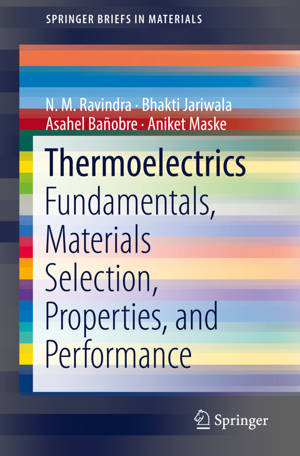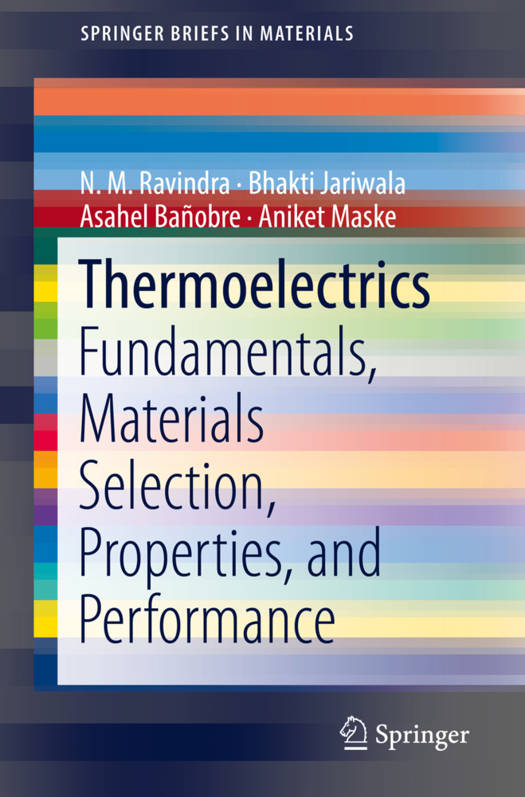
Vous voulez être sûr que vos cadeaux seront sous le sapin de Noël à temps? Nos magasins vous accueillent à bras ouverts. La plupart de nos magasins sont ouverts également les dimanches, vous pouvez vérifier les heures d'ouvertures sur notre site.
- Retrait gratuit dans votre magasin Club
- 7.000.000 titres dans notre catalogue
- Payer en toute sécurité
- Toujours un magasin près de chez vous
Vous voulez être sûr que vos cadeaux seront sous le sapin de Noël à temps? Nos magasins vous accueillent à bras ouverts. La plupart de nos magasins sont ouverts également les dimanches, vous pouvez vérifier les heures d'ouvertures sur notre site.
- Retrait gratuit dans votre magasin Club
- 7.000.0000 titres dans notre catalogue
- Payer en toute sécurité
- Toujours un magasin près de chez vous
Thermoelectrics
Fundamentals, Materials Selection, Properties, and Performance
N M Ravindra, Bhakti Jariwala, Asahel Bañobre, Aniket Maske
58,45 €
+ 116 points
Description
This book provides a concise but comprehensive introduction to the fundamentals and current state of the art in thermoelectrics. Addressing an audience of materials scientists and engineers, the book covers theory, materials selection, and applications, with a wide variety of case studies reflecting the most up-to-date research approaches from the past decade, from single crystal to polycrystalline form and from bulk to thin films to nano dimensions.
The world is facing major challenges for finding alternate energy sources that can satisfy the increasing demand for energy consumption while preserving the environment. The field of thermoelectrics has long been recognized as a potential and ideal source of clean energy. However, the relatively low conversion efficiency of thermoelectric devices has prevented their utility on a large scale. While addressing the need for thermal management in materials, device components, and systems, thermoelectrics provides a fundamental solution to waste heat recovery and temperature control. This book summarizes the global efforts that have been made to enhance the figure of merit of various thermoelectric materials by choosing appropriate processes and their influence on properties and performance. Because of these advances, today, thermoelectric devices are found in mainstream applications such as automobiles and power generators, as opposed to just a few years ago when they could only be used in niche applications such as in aeronautics, infrared imaging, and space. However, the continued gap between fundamental theoretical results and actual experimental data of figure of merit and performance continues to challenge the commercial applications of thermoelectrics. This book presents both recent achievements and continuing challenges, and represents essential reading for researchers working in this area in universities, industry, and national labs.Spécifications
Parties prenantes
- Auteur(s) :
- Editeur:
Contenu
- Nombre de pages :
- 126
- Langue:
- Anglais
- Collection :
Caractéristiques
- EAN:
- 9783319963396
- Date de parution :
- 10-09-18
- Format:
- Livre broché
- Format numérique:
- Trade paperback (VS)
- Dimensions :
- 156 mm x 234 mm
- Poids :
- 204 g







